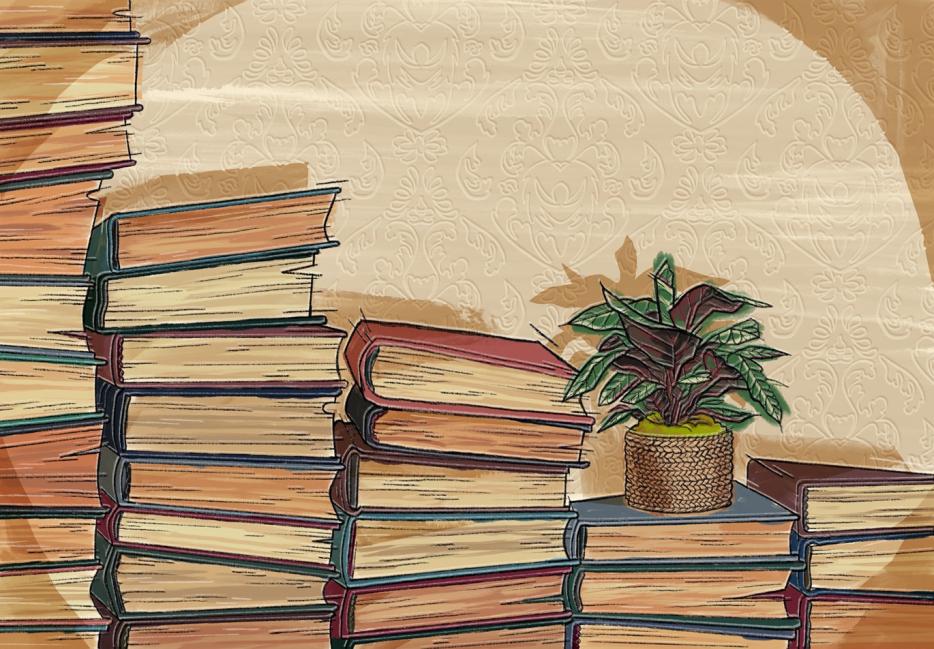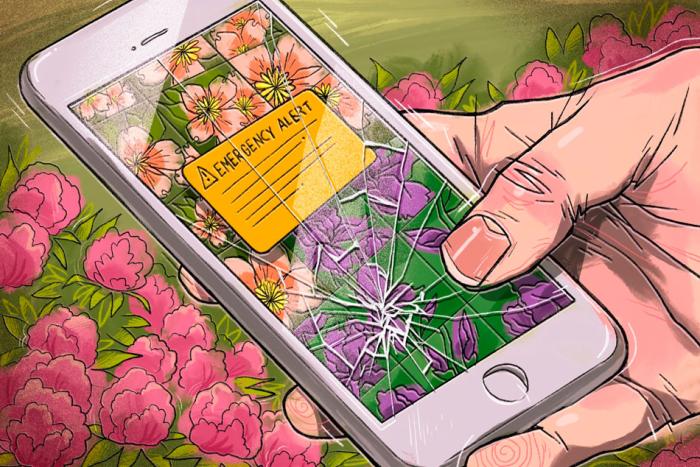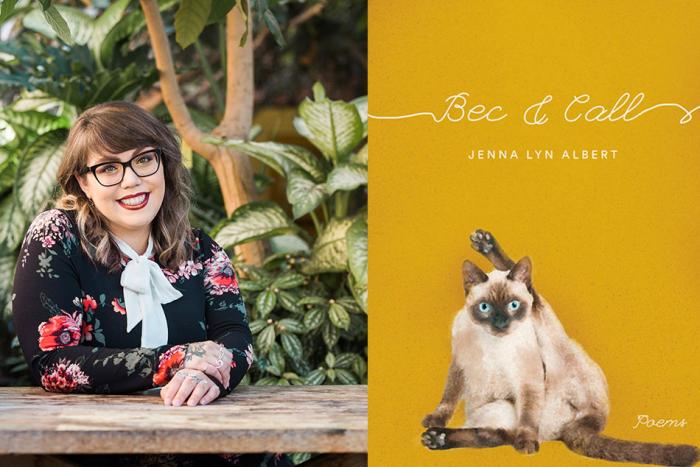What were we obsessed with, invested in, and beset by in 2020? Hazlitt’s writers reflect on the issues, big and small. Keep up with this year's series here.
Something most of my reading audience, which is composed mostly of people from the literary scene and the hardcore social justice crowd, doesn’t know about me is that I live a secret double life in the land of white “wellness” women. Think meditation apps, Gwyneth Paltrow’s Goop, life coach Instagram influencers who intersperse so-genuine-it’s-nauseating inspirational quotes with advertisements for their latest online course that will heal me from the inside out—that’s what I’m talking about. Oh, and the yoga. There is so. Much. Yoga. Yoga for strength, yoga for better breathing, yoga for mental health, yoga for better emotional boundaries, yoga for increased psychic awareness. You name it, I’ve done a course for self-improvement in it, and I am signing up for more as we speak.
It all started innocently enough, with my interest in trauma therapy. I left the psychotherapy biz a couple years ago, but like the nerd I am, I still keep abreast with developments in the field. Right now, somatics, or body-based healing, is the name of the game in the trauma recovery world (which I now know is a vast industry spanning treatments from the scientifically validated to the exhilaratingly cutting-edge to the flat-out weird). Once one starts down the somatics path, it’s a hop-skip-and-a-jump to the kind of yoga and mindfulness that purports to “neurosculpt” your brain for maximum meditative power, and then before you know it, you’re taking ice cold showers every day to tone your vagus nerve before the online session with your Soulful Sexuality Coach and devoting your life to the Wim-Hof Method.
My slide into self-improvement dependency was well on its way before the COVID-19 pandemic, but something in me kicked into overdrive around June 2020. My personal world, along with the world in general, was collapsing in on itself: my friends and family lost jobs and plunged into mental health crises; entire social scenes that I belonged to dissolved into conflict, violence, and tragedy. More than one person I know died, and many attempted to take their own lives.
In the midst of all that horror, the spiritual seeker within me awakened. Trapped in quarantine in downtown Toronto, I started on an Asian, transsexual Eat Pray Love journey, Pandemic Edition™. Instead of travel to “exotic” locales, I had my tiny, crumbling studio apartment. In place of a $200,000 book advance, I had, well, no advance. In lieu of a deliciously mysterious new male love interest, I had first my long-term partner (who came to live with me after fleeing the US), and then literally no one after my partner went to stay with their parents in Ottawa.
In early days of the pandemic, self-styled marketing guru Jeremy Haynes tweeted: “If you don’t come out of this quarantine with either: 1.) a new skill 2.) starting what you’ve been putting off like a new business 3.) more knowledge You didn’t ever lack the time, you lacked the discipline.”
The backlash to Haynes’ tone-deafness to the socioeconomic and mental health impacts of the pandemic on marginalized communities was swift and razor-sharp, spawning memes and sub-memes pointing out the utter ridiculousness of exhorting self-help nonsense amidst unprecedented global and individual crisis. Yet a nagging, narcissistic part of me seized onto Hayne’s sentiment. Of course, I didn’t believe that other people should be held to an absurd standard of self-improvement in response to the pandemic. On the other hand, there was no reason that I, Kai Cheng Thom, Queen of the Universe and Mistress of All She Surveys, Priestess of the Old Religion, and Breaker of Chains, ought not to be, right?
In the past eight months, I’ve completed a 100-hour Meditation Teacher Training, a 100-hour Pranayama Breathwork Facilitator Training, a 40-hour Yoga Nidra Teacher Training, and a 45-hour Restorative Yoga and Somatic Movement Teacher Training. I’m also midway through a Post-Graduate Certificate in Conflict Resolution at the University of Waterloo, as well as a 500-hour Somatic Breathwork Facilitator Training, a 300-hour advanced Meditation Teacher Training, and a practitioner’s course in functional breathing. Oh, and at the height of my madness, I also started learning how to play a new musical instrument. Before you ask, yes, I do have a full-time job and several side hustles, as well as community organizing activities, all of which I now do online.
Let’s unpack that last paragraph, lest you interpret it as an enormously extended humble-brag: I suppose one might say that all my “accomplishments” and “personal/professional development” are “impressive.” You might think, sure, she may have gone a little overboard, but there are worse coping methods than self-improvement, right? Here’s a reality check for you and me both: I am addicted to self-improvement. Literally, I am obsessed with it. Throughout the day, I think about the courses I’m doing and my performance in them at least a few times every hour; when I’m alone, I get anxious and dizzy and make myself sick worrying about whether or not I’m learning enough. When I’m not worrying, I’m fantasizing about all the Amazing Things I’m going to do with the knowledge I’ve acquired, except that then leads me to notice gaps in my knowledge and skill set, which makes me anxious all over again.
When I’m in a self-improvement course, which is for obvious reasons always online these days, I’m often not able to pay full attention, because I’ve already detected omissions in the course content that I of course have to fill, so I start researching new self-improvement courses to help me with that. When I find a course that seems, based on a cursory glance at the marketing photos and copy, to be what I’m looking for, I become fixated on it. I go back to the course website over and over again. I look up the instructor’s social media. I get twitchy and panicky. I try to resist the urge as long as I can, because most self improvement courses are expensive as fuck, especially the ones I want to take, because I’m never satisfied with just doing something at the surface level. I have to become a teacher, a master, an expert. Eventually, I register for the course.
I’ve dipped in and out of debt over self-improvement. The only way I’ve been able to keep this whole cycle going is because I’m sometimes able to get scholarships on account of being an “oppressed minority” and because I spin my teacher trainings into courses or trainings of my own, which then make just enough money to pay off what I’ve spent on the last course. I’m not alone in this: The wellness industry is, by and large, shaped around the model of a pyramid scheme, and it works well, because what it sells is fulfillment. Peace. Self-mastery. All of which people desperately want in the time of quarantine, political and environmental apocalypse, the end of things.
There are moments where I do find real peace in what I do—usually in the middle and at the end of my latest training. The wellness industry might be a pyramid scheme, but many of the practices it has appropriated and commodified are not: meditation, yoga, martial arts, and breathwork are all powerful and valuable when practiced skillfully under the eye of a master. And for all the jokes and scathing comments that an anarchist social-justice tranny like me might make about Wellness™, there is something deeply beautiful about a community built around the notion of changing oneself for good. Where taking time for personal practice and sacredness isn’t seen as a bourgeois indulgence, but rather a necessary form of self-care and collective healing.
My strange and strained relationship with self-improvement reminds me a lot of the Batman mythos, in which six-year-old Bruce Wayne witnesses his parents murdered by thieves and then obsessively devotes his life to learning combat and fighting crime. Yet no matter how many crimes Batman solves or supervillains he defeats, he can never be happy because he cannot accept that his accomplishments will never bring his parents back to life. It’s kind of the same with me and healing work. I’ve devoted my life to practices that are supposed to make me a better person and a more skillful healer because, I suppose, there is a part of me that still believes that if I can just learn more, I can stop my friends from getting hurt, hurting each other, and dying.
Maybe in 2021, I’ll put my savior’s crusade to rest, if for no other reason than it’s doomed to fail. I can’t save anybody. Maybe not even myself. This is the whole point of meditation and contemplation: To accept that our impulses cannot save us from impermanence, that change and failure and death are inevitable. That stillness, as much as movement, is divine. Maybe I’ll finally learn how to be and not do, how to let myself heal by not healing.
You know, I bet there’s a course for that.






